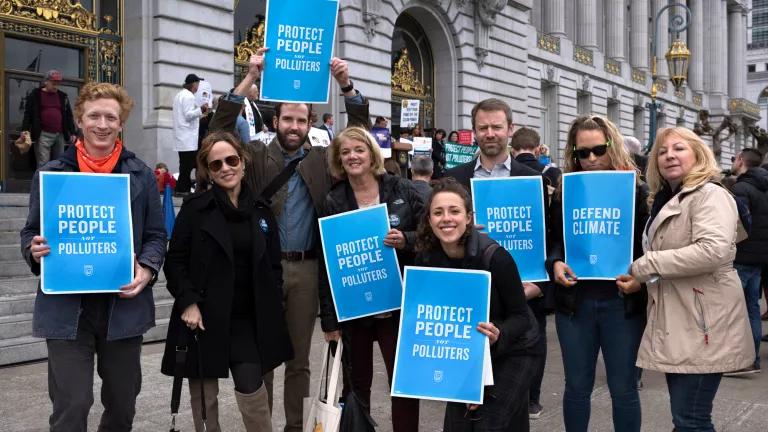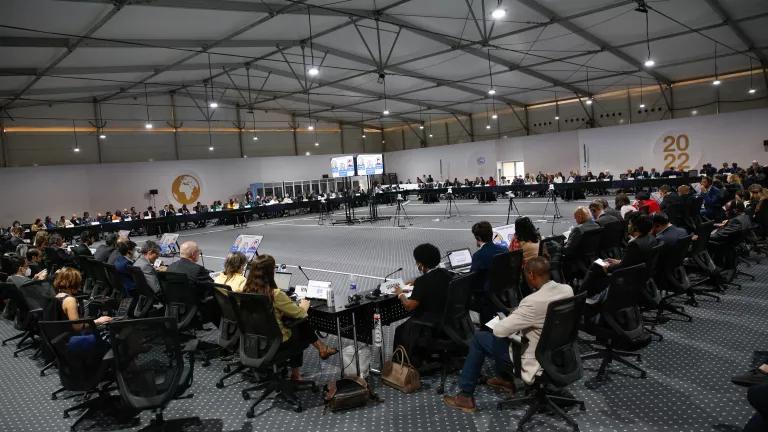It's New Year's Eve - and while the year ahead appears momentous, 2015 deserves some love as it recedes.
2015 saw events large and small, public and personal, some laden with pain and others with long-awaited victory, and all bear reflection. But the 2015 Paris Agreement may be among those with the greatest lasting effect. The Paris Agreement among leaders from 187 countries saw specific new commitments to reduce heat-trapping carbon pollution. That means the nations that emit 97% of the world's carbon pollution agreed to a downward carbon emissions trajectory.
The signers also agreed on a system to track each country's progress toward meeting their reduction targets.
There's a renewed spirit of aspiration to move global economies toward healthy, sustainable energy futures. There's a whole host of actions, beyond those at the national level, that were detailed in Paris - and in many places, actions by cities are leading the way. People are talking about Paris as the start of a Climate Revolution - a new focus and unity devoted to limit the climate crisis. My NRDC colleague Jake Schmidt, who leads our International Program, wrote this great summary of where the agreements just forged can lead in years to come. NRDC President Rhea Suh sees enormous opportunities that can flow from a clean energy revolution.
There was more unity than ever between developed and developing nations at the Paris meetings. India played a leading role in forging an international solar alliance in an effort to rapidly promote global use of this clean energy source.
I'm part of NRDC's India Initiative, led by Anjali Jaiswal. The Initiative works with Indian partners to develop strategies that promote clean energy and energy efficiency, limit greenhouse gas pollution, and reduce people's vulnerability to extreme heat. India was gripped in spring of 2015 by a heat wave that killed over 2,000 people, one of the worst among several recent such extreme weather events. Climate change is fueling these heat waves, making them more intense, widespread, and longer-lasting. Heat represents a public health issue faced not only in India, but globally - and a climate-health issue on which cities can take actions that help save lives.
With this in mind, at COP-21 in Paris earlier this month, NRDC launched our City Resilience Toolkit. Developed with Climate & Development Knowledge Network (CDKN), Public Health Foundation of India/Indian Institute of Public Health-Gandhinagar (IIPH-G), and other partners, the Toolkit can be used not only by cities in India, but to support widespread adoption of urban heat solutions in cities around the world.
As 2015, expected to be the warmest year ever in the global historical record, draws to a close, with extreme weather events affecting the world's cities, the newly-forged Paris Agreement offers us much-needed hope. It's a meaningful, solid step on the road to limiting the worst effects of climate change, and getting very serious about helping people in cities everywhere to thrive under a changing climate. That's a hope, a project, and a just cause to look forward to.



